Need to find LGBTQ+ friendly and inclusive wedding vendors for your special day? This is the blog for you!
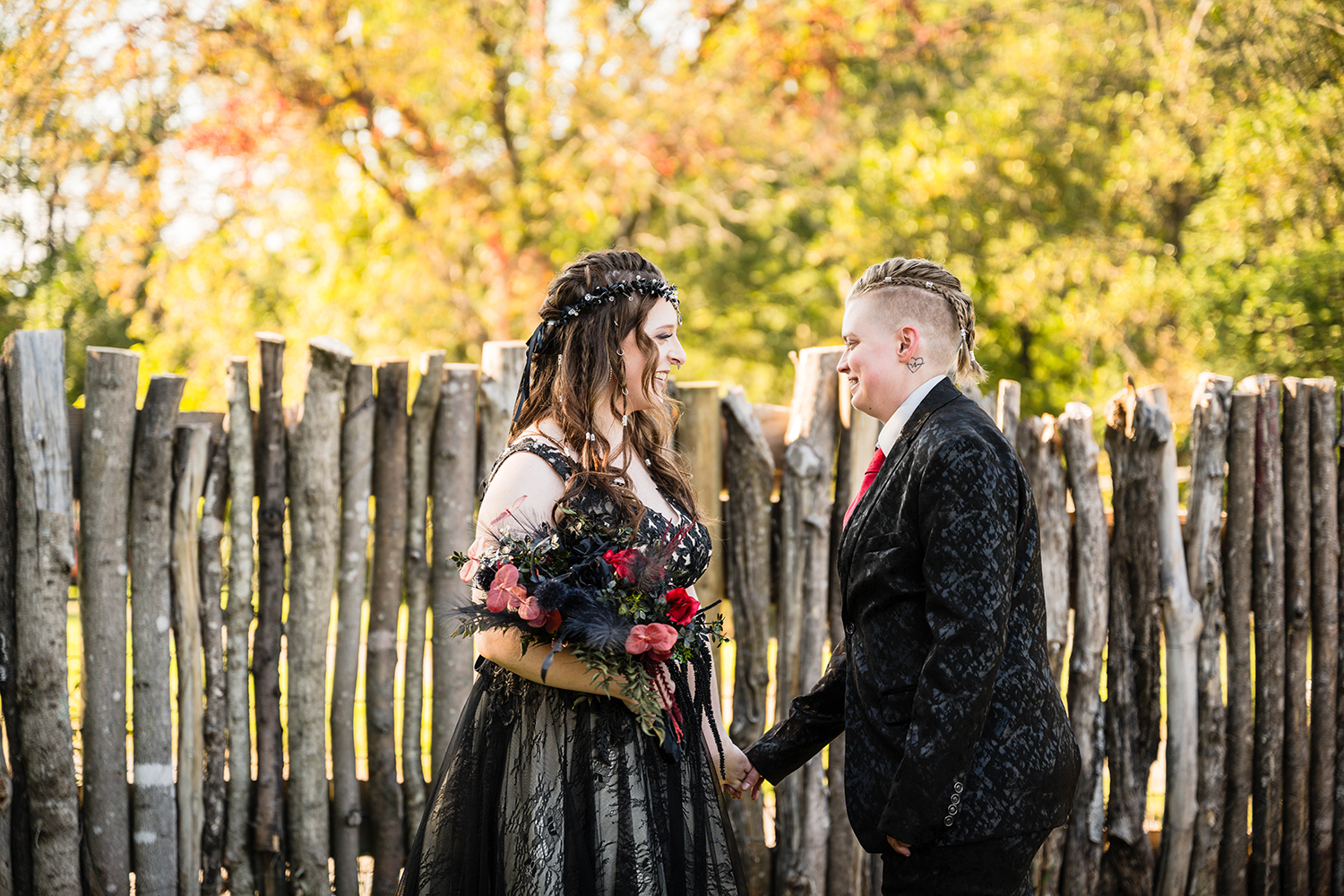
Since the legalization of LGBTQ+ marriage in 2015 in the United States, the support for the LGBTQ+ community has continued to increase, but, unfortunately, it’d be naïve to believe that everyone will be accepting and inclusive of queer people and couples within 7 years. If you’re an LGBTQ+ couple looking to get married or to elope and need to find LGBTQ+ inclusive wedding vendors, here are a few questions you can ask yourself during your search.
Does their website or social media portray images of LGBTQ+ folks and/or couples?
If you’re browsing through their website and don’t see any LGBTQ+ couples or folks, that may be a good sign to look elsewhere. If a vendor is truly accepting of the queer community, they’d find a way to put LGBTQ+ people on their site. Though, keep in mind that not all LGBTQ+ couples are the same; some may present as if they’re in a heteronormative relationship but maybe one partner (or both partners) identify as bi, pan and/or trans. Additionally, being out is not a requirement to be a part of the LGBTQ+ community.
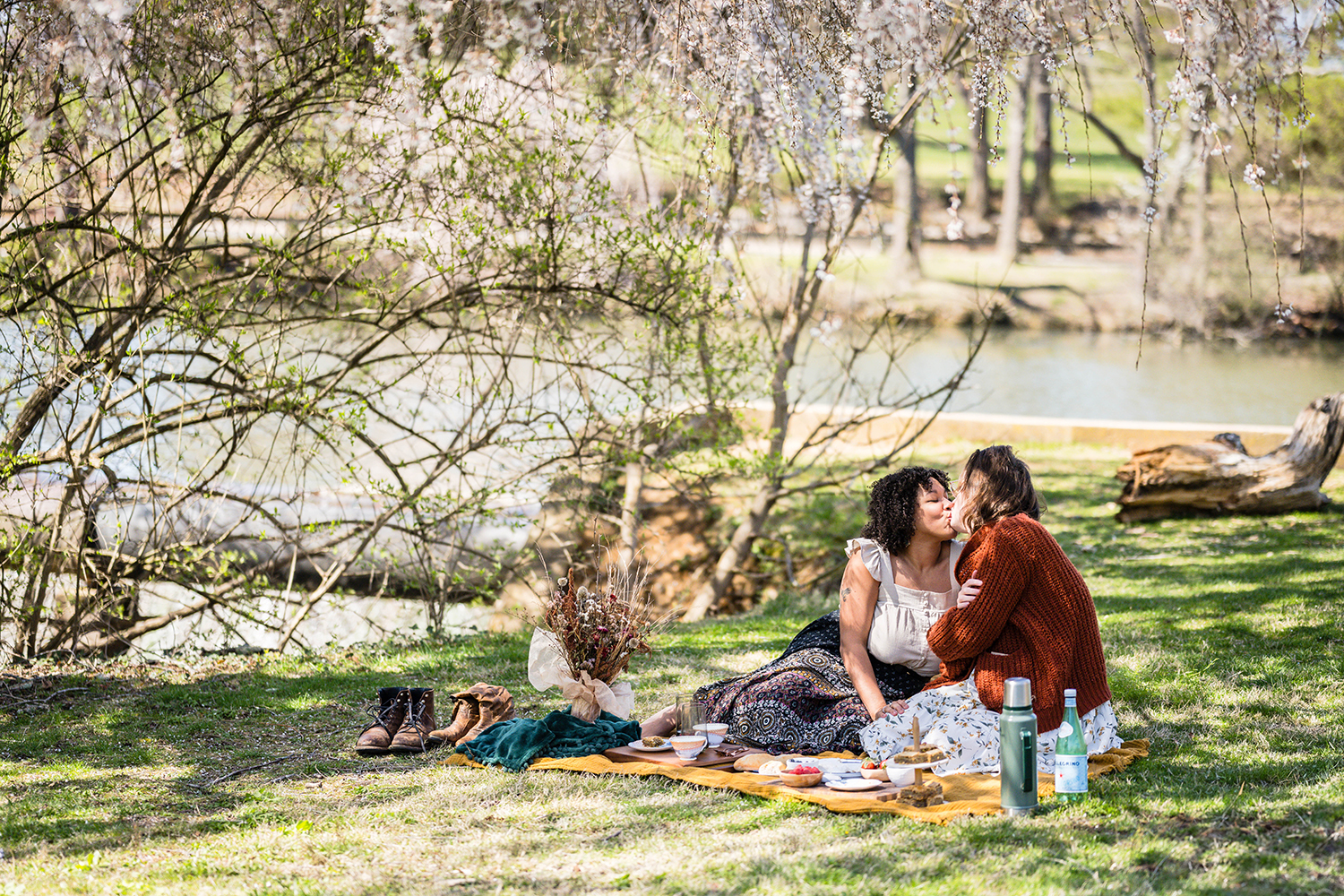
Do they mention anything about pronouns?
When scrolling through a potential wedding vendor’s website, keep an eye out for pronouns. Do they identify their personal pronouns on their About page? Do they indicate a previous client’s pronouns on a review? Do you notice pronoun callouts or requests on their Contact forms? These are all good spots to find (or discover the lack of) pronouns. If you found your potential wedding vendor through social media, did they take the opportunity to include their pronouns in the bio or in a pinned post? When interacting with the vendor, either online or face-to-face, notice how they introduce themselves and if they ask for your pronouns. Chances are, if you see pronouns and they ask for your pronouns, they’re LGBTQ+ friendly.
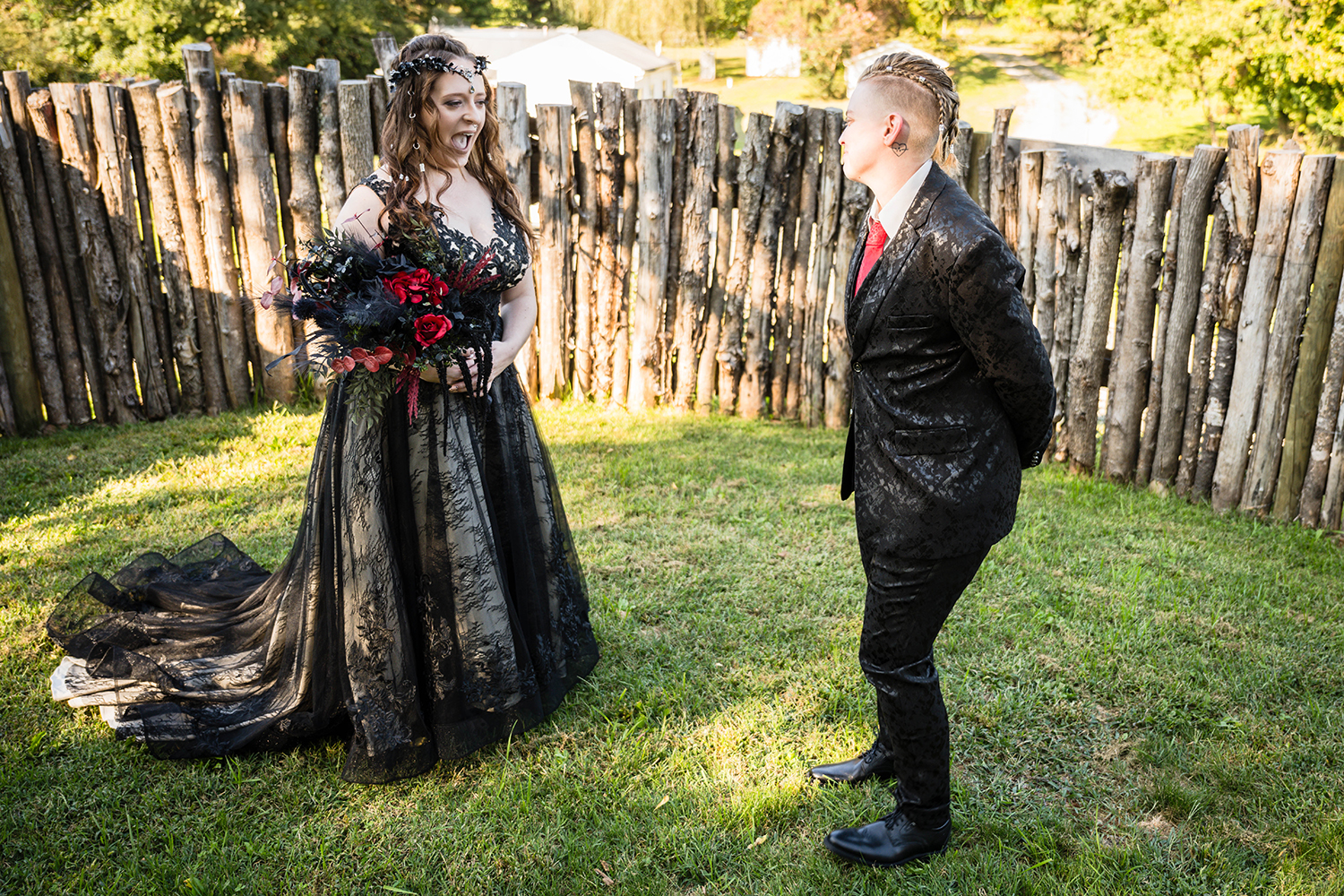
Do they use gender neutral language on their website, social media, business materials, and in-person?
Inclusive wedding vendors have an understanding of the LGBTQ+ community and recognize that traditional wedding terms like “bride” and “groom” don’t encompass all people getting married. The absence of this language should be consistent all throughout their online presence, business materials (contracts, contact forms, client guides, etc.), and when they’re speaking with you. Vendors that are supportive of the LGBTQ+ community may even go as far as purposefully using gender neutral terms like “spouse(s)”, “partner(s)”, “newlywed(s)”, “nearlywed(s)”. Bonus points if they also consider gender neutral terms for other aspects of your wedding (e.g., using “Person of Honor” instead of “Maid/Matron of Honor”, “Wedding Party” instead of “Bridal Party” or “Groomsmen”, etc.).
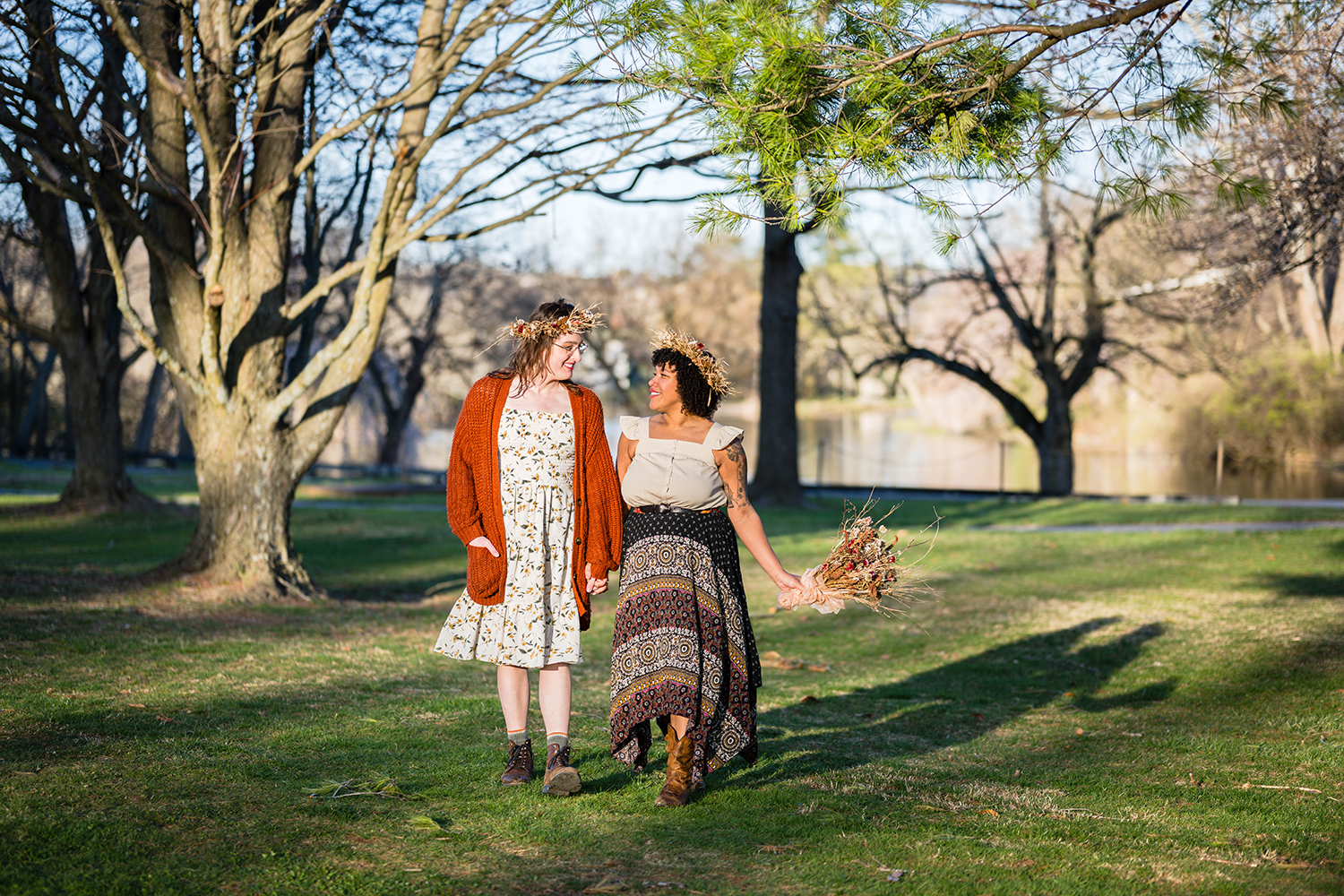
Does their content on their social media, website, or business materials speak to you or help you?
If you’re scrolling through their social media feed or reading through their blog posts, do you find that their content is helpful or resonates with you? Can you find resources, tips, or information that is specifically catered to the LGBTQ+ community? Do you find that you and the vendor share similar morals and values and can form a connection? These are all great signs!
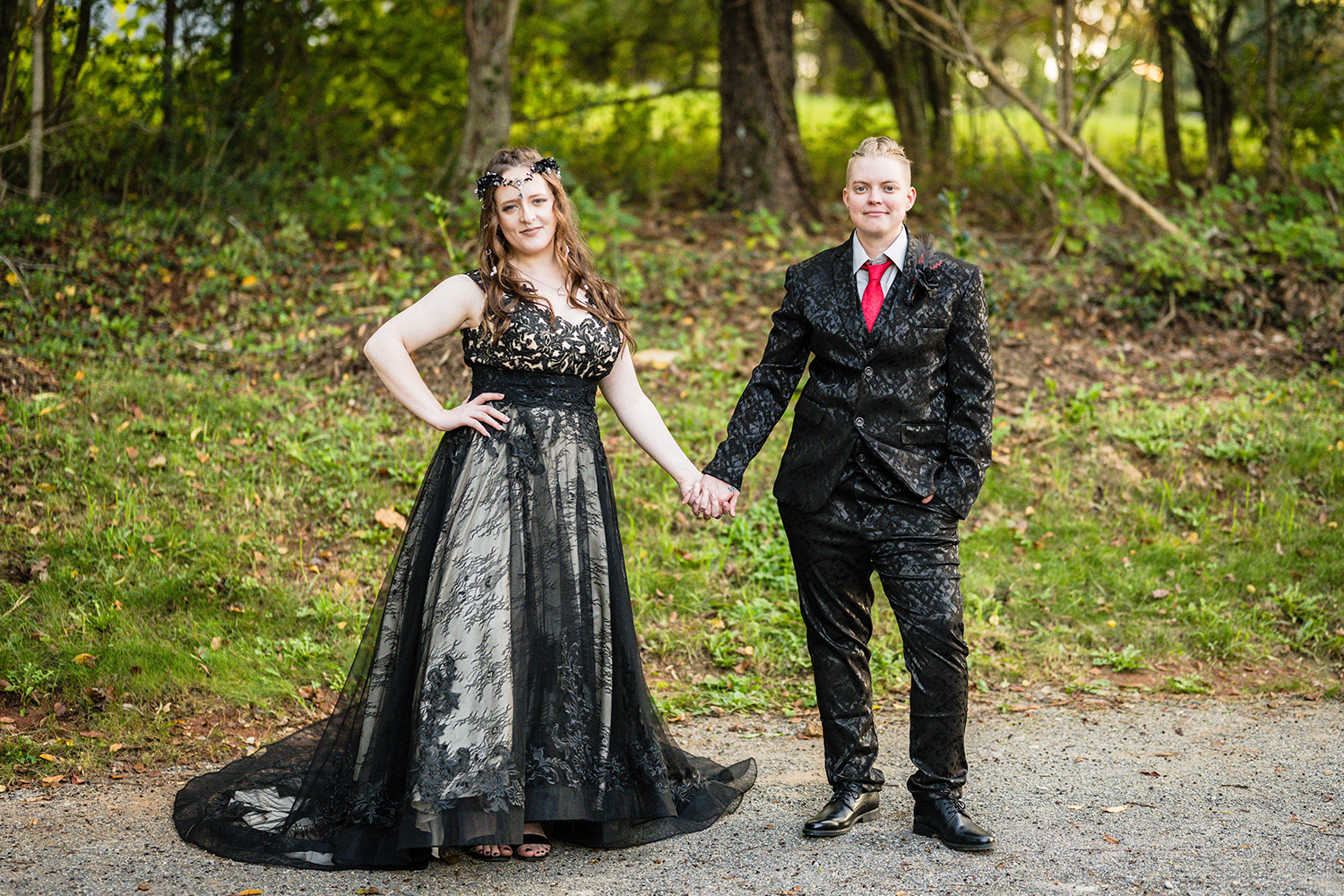
“I really want to work with this vendor because I like their work, but I’m not sure if they’re supportive of the LGBTQ+ community. Help!”
You shouldn’t have to read between the lines to figure out if the wedding vendor you want to work with is LGBTQ+ friendly, however, if you really want to know, sometimes the best way to find out is to ask. If you can, try to talk to the vendor via video call or meet them face-to-face and ask them the question “How do you feel about working with an LGBTQ+ couple?” While it may seem intimidating, this is probably the best way to know for sure how they actually feel about working with a queer couple. Check their facial expressions and body language and see how it shifts when the question is asked and while they’re responding. Do they seem noticeably uncomfortable or do they radiate with joy? Go with your gut and trust your intuition.
As you already might know, weddings and elopements require lots of planning and finding vendors that are genuinely excited to work with you and your partner is key. While it may take time to find the right vendors, these five questions will help you speed up your search for LGBTQ+ inclusive wedding vendors. It’ll be worth it in the end when you know that the vendors you’ve selected support the queer community and will work with you to make your day absolutely special.
If you identify as queer and are worried about finding an LGBTQ+ friendly officiant for your wedding or elopement, I’ve written a blog about three things that can help you improve your officiant search.
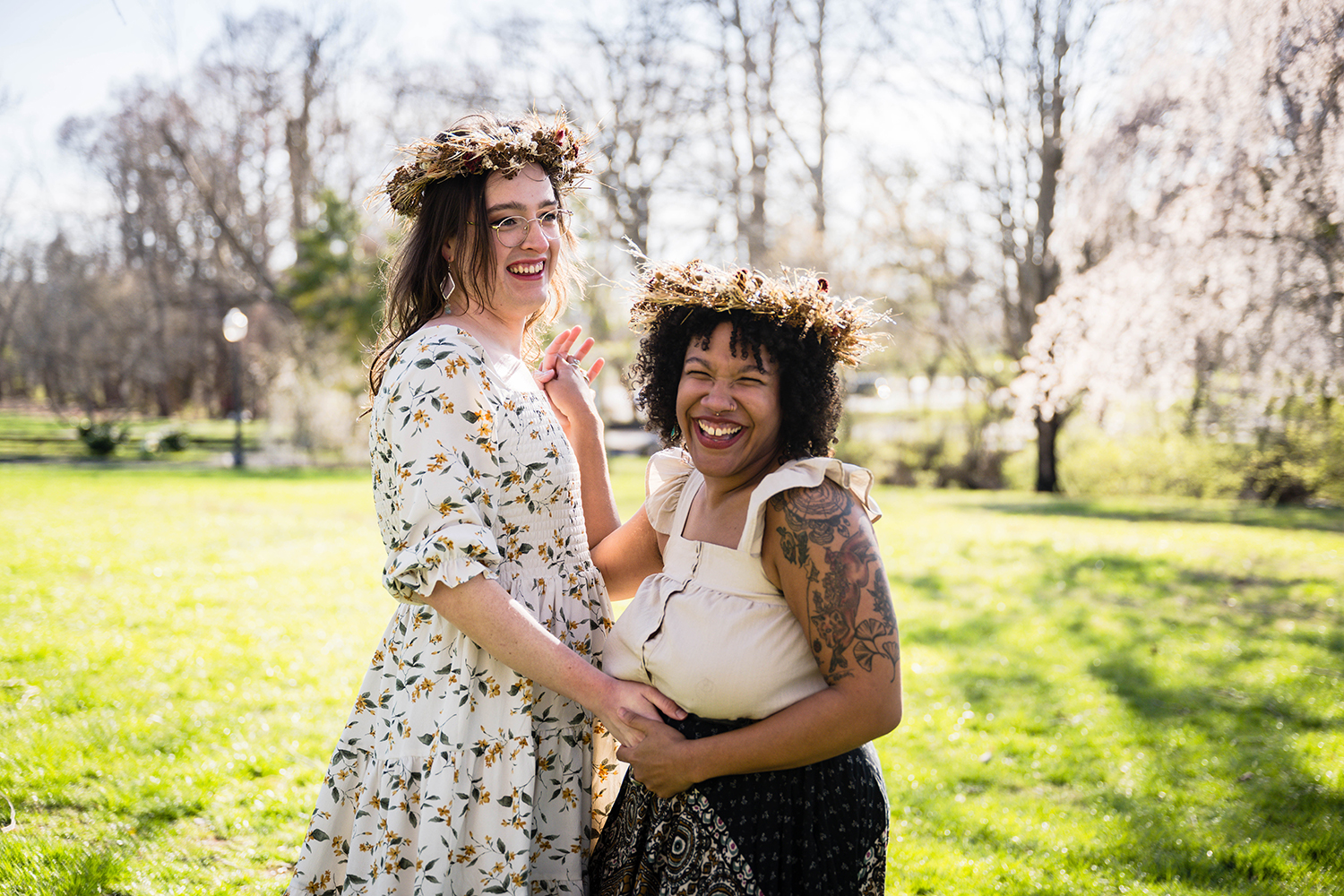
Are you a couple looking for an LGBTQ+ friendly and affirming photographer for your elopement? You’ve found me! My name’s Cameron (she/her) and I am SO ready to help you take the reins on your special day and plan your own intimate elopement in Virginia! Fill out an inquiry form to get started or check out my pricing to learn more about my philosophy, practice, and packages.
Celebrating LGBTQ+ couples and their love is my passion. I recognize that there needs to be more LGBTQ+ representation within the wedding industry and, instead of waiting for the industry to improve, I decided to be the change. I see my work as a form of advocacy that will amplify the presence of the LGBTQ+ community and cultivate a culture that favors love, regardless of sexual orientation and gender identity + expression.
I encourage you to check out some of the elopements I’ve planned and photographed for LGBTQ+ couples: Courtney and Nadine’s Duck Pond elopement and Ryanne and Meredith’s Roanoke Airbnb elopement. I’ve also had the privilege of photographing LGBTQ+ couples to celebrate their engagement or anniversary. Here are the blogs for those adventure sessions if you’d like to see more: Levi and Zach’s Fae Cottage Flower Farm Adventure Session in Roanoke, Virginia; Meredith and Ryanne’s Roanoke Star Engagement Session; and James and Pedro’s At-Home Photoshoot Adventure Session in Downtown Roanoke.
Maybe you have plenty of inspiration, but you need planning resources, here a few blogs I’d recommend to help you get started: